It’s said that there are only about 4000 Q-graders in the world, and only 30% of the exam takers pass. Thus, we can conclude that the Q-grader certification is a serious uptaking, and once obtained, means that you really know coffee.
So what makes this certification prestigious and how do you pass the exams?
Background on Q-grader
There are a number of great and not-so-great coffees, which can be overwhelming to those in the industry –from roasters, coffee buyers to coffee shop owners. To address this issue, Q-grader certifications act as a solution and stand as a unified standard of coffee tasting, helping define what great coffee really is.
Q-grader certifications are the most respected award for people involved in the coffee industry. The coffee community recognized the need to have a standard to judge coffee, similar to the sommelier certification in the wine industry. The Specialty Coffee Association (SCA) – the industry’s leading association, then created a universal grading system so coffee quality could be scored using a worldwide unified standard.
What is a Q-grader?
A Q-grader is a trained coffee cupper who assesses coffee according to the Specialty Coffee Association (SCA) standard, involving procedures, vocabulary and even specialist evaluation forms. The Q-grader exam and license are obtained from the Coffee Quality Institute (CQI), a non-profit coffee organization that creates and operates the Q-grader exams and certifications.
This standardization was created in 2003, and today, there are two types of Q-grader certifications that you can acquire: Arabica Q-grader and Robusta Q-grader. According to CQI, Arabica Q-grader is graded by the Specialty Coffee Association of America (SCAA), meanwhile Robusta Q-grader is assessed and graded by the Uganda Coffee Development Authority (UCDA). An Arabica Q-grader’s main job is to assess whether particular Arabica coffee is passing the quality check as “specialty coffee,” meanwhile, a Robusta Q-grader assesses canephora coffee to examine whether it passes the “fine grade coffee” assessment.
Q-grading itself is an evaluation of coffee quality via cupping –smelling and tasting the coffee. The coffee scoring is based on several points, including aroma, flavor and acidity. The coffee must score above 80 points to obtain “specialty grade.” It can then be further classified into “very good,” “excellent,” and “outstanding” based on the final score.
Scoring:
- 80-84.99: Very good
- 85-89.99: Excellent
- 90-100: Outstanding
There are a few factors that make a good Q grader: first, they can appropriately assess green beans, both the good quality and the defects. Second, they notice the potential mishaps in coffee roasting and can put one’s finger on different types of roasts. Third, they are able to tell apart each bean’s characteristics as a result of bean cultivation and processing, the storing and transport process, as well as the roasting process.
What are the Q-grader exams about?
Precaution: The Q-grader exam is one of the hardest tests in the world and it costs around 2000 USD. The certification must also be renewed every three years –to ensure the recipient is updated with new coffee trends, so those who are willing to take it are mostly likely very serious about coffee!
The whole Q-grading course and certifications take around six days to complete; the first half is for training and workshops and the second half is for examinations. The first three days are full of exam trials and general knowledge which help you prepare for what’s coming in the following days. In the next three days, exam takers must pass the complete 19 tests to obtain the certifications. Those 19 tests include cupping tests, triangulation tests, olfactory tests, sensory skills, organic acid matching pairs test, sample roast identification skills, green coffee grading, and roasted grading. The tests are pretty exhausting as it takes an entire day – from morning to evening to complete.
According to Tomo Laca from European Coffee Trip, this is the breakdown of the Q-grader exams:
- Cupping (4 tests): you will cup and evaluate different types of coffee: Milds, African, Asian and naturals
- Triangulations (4 tests): this is completed using the same coffee from the cupping tests. You will have three cups of coffee –two will be the same coffee and the other one will be different. You will need to differentiate which is which based on the smell, break crema, etc.)
- Acids in coffee (1 test): Identify one of the four basic acids present in weak coffee filters (acetic, citric, malic, phosphoric)
- Olfactory (4 tests): Identity aroma using Le Nez du Cafe set. There will be 36 aromatic scents that are commonly found in coffee –some of them are blind samples, and others are labeled as groups
- Sensory skills (2 tests): Determine the three different compounds: sweet, salt and sour on their own, then mixed together
- Roast sample ID (1 test): mark error and differentiate coffee samples: underdeveloped roast, SCA standard roast and overdeveloped roast.
- Green and roasted coffee grading (2 tests): You will need to spot the defects in a green coffee sample. Then in the roasted coffee samples, you will need to spot the quakers.
- General knowledge exam (1 test): this will be in the form of 100 multiple-choice questions about roasting, harvesting, cupping, grading, growing and processing –you can find the knowledge on SCA booklets and lectures!
Everyone can take the Q-grader examinations whether they work in the coffee industry or not, but having experience in coffee would be very helpful since the test is advanced. The SCA has approved some Q-Grader training programs all around the world (called the pre-Q) that can be found here. Hosts of these training programs are usually coffee shops, roasters and coffee academies.
Not everyone will pass on the first try, but you can make up for the tests that you don’t pass on the first try. The test will surely be draining, but if you practice enough and are confident with your palate, it will pay off!
How to prepare for the Q-grader exams?
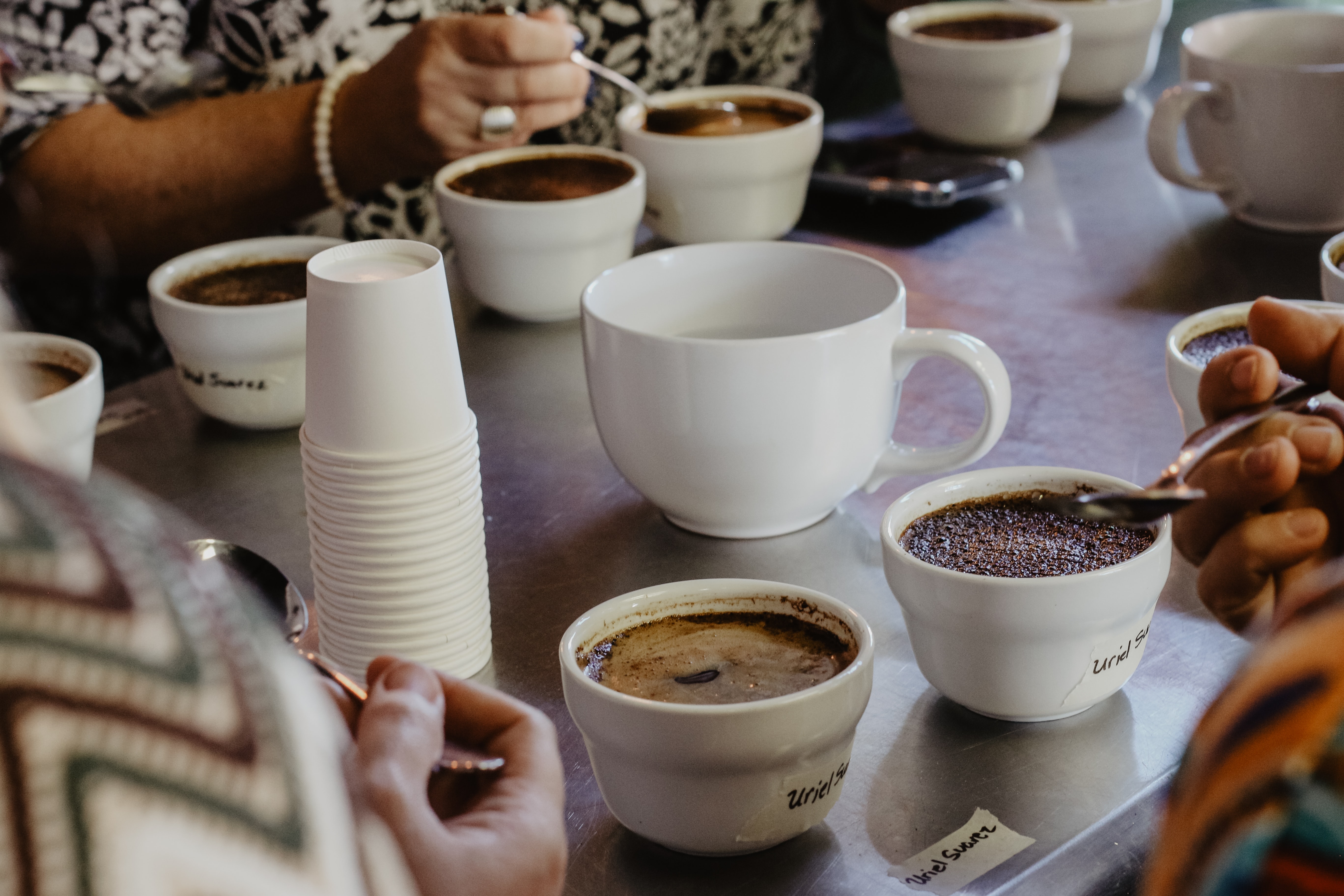
When planning to take the exam, it’s better to start preparing one to two months prior to the test since it will be exhausting on D-day – involving lots of tasting and testing in a short period of time along with the pressure to pass the exams.
You can purchase the Le Nez du Café aroma kit to practice for the olfactory test. Barista Institute also recommends studying the SCA protocols and handbooks for cupping, brewing and classifying defects in green coffee. By studying the SCA Cupping Forms, you can focus on evaluating the coffee instead of trying to understand the form during the test. You can also prepare sweet, sour and salty liquid mixes at your home to prepare for the sensory skills test.
Moreover, you need to lengthen your palate and increase your sensitivity to a wide range of flavors by tasting as much coffee as possible. However, according to the personal account from Tomo Laca, you also need to keep an eye on your diet because too much sensory training can lead to palate fatigue. You need to avoid strong-flavored food –say no to too much chili, garlic and onions. You can also invest time in training sessions before and after work. During the Q-grader exams, you obviously have to get enough sleep and be hydrated so you can stay alert.
Even though it isn’t a requirement to be in the coffee industry to take the Q-grader exams, having prior experience in cupping competitions will crucially help you, especially in the triangulation test – where you must select the odd coffee out of the group. In the scoring part, you also have to be very objective and separate your emotions from the scoring.
With well-prepared training and good physical and mental conditions, you will be able to acquire the Q-grader certifications. We hope this article helps you best prepare for the exams and we wish you the best of luck!
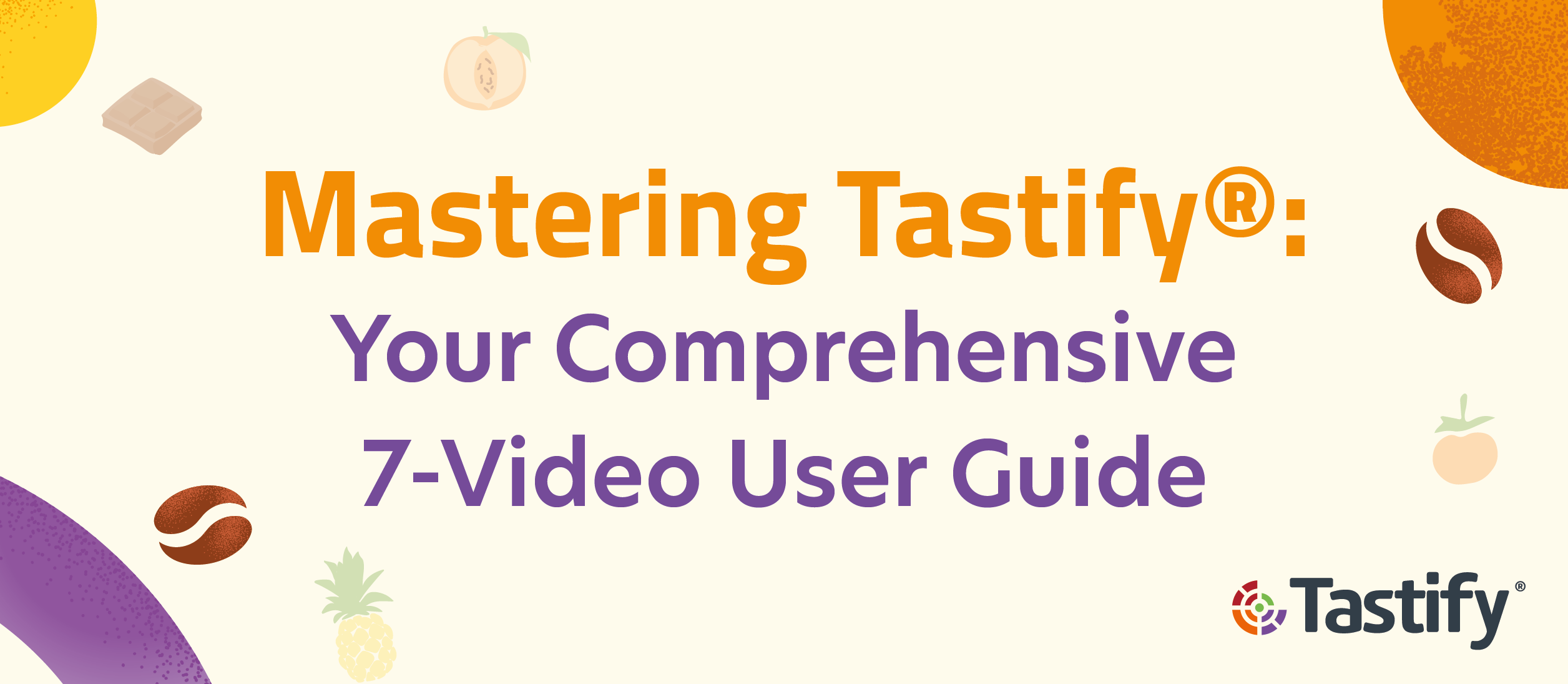
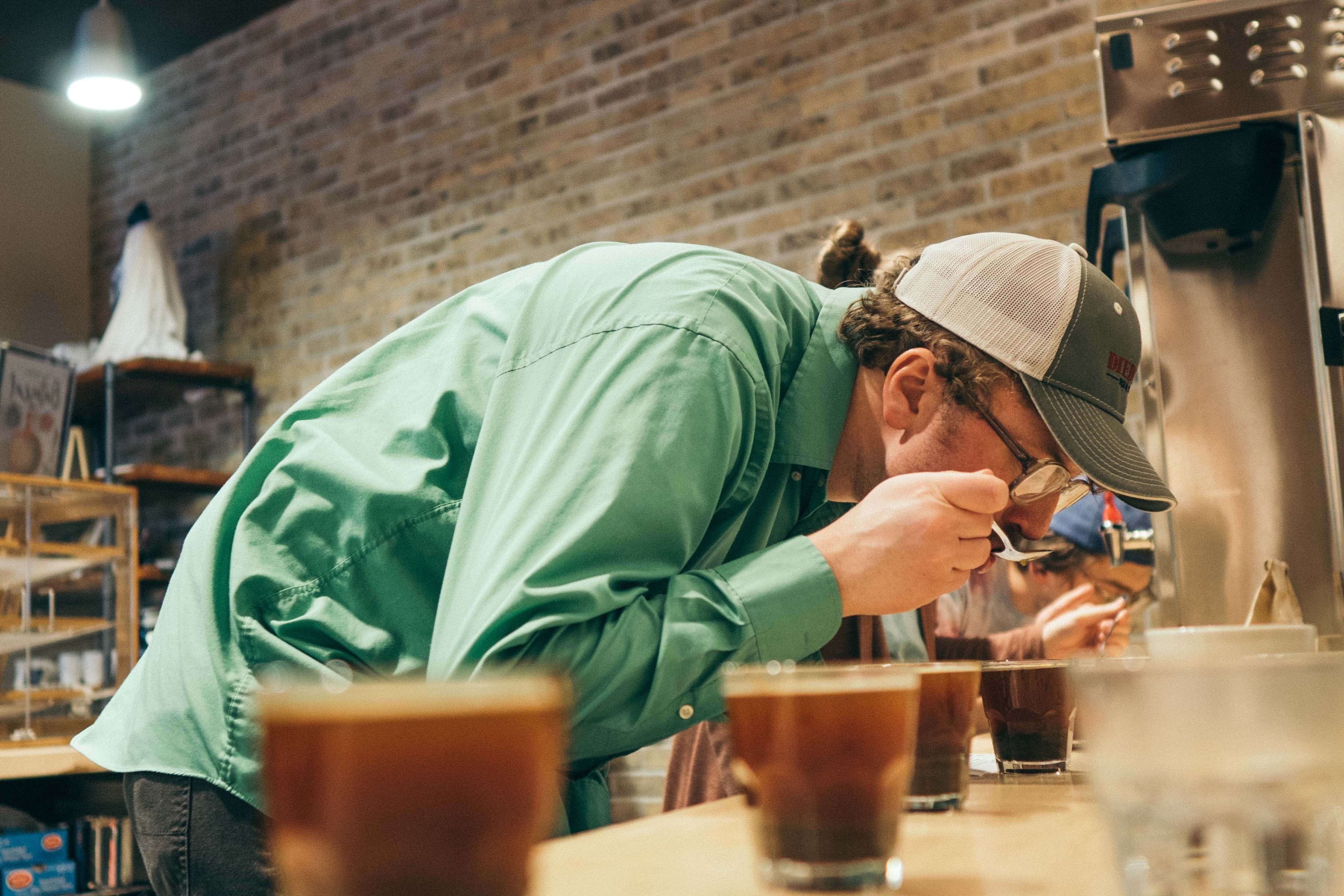
.jpg?width=5472&name=rene-porter-7RYrEvbqFM8-unsplash%20(1).jpg)

.png)
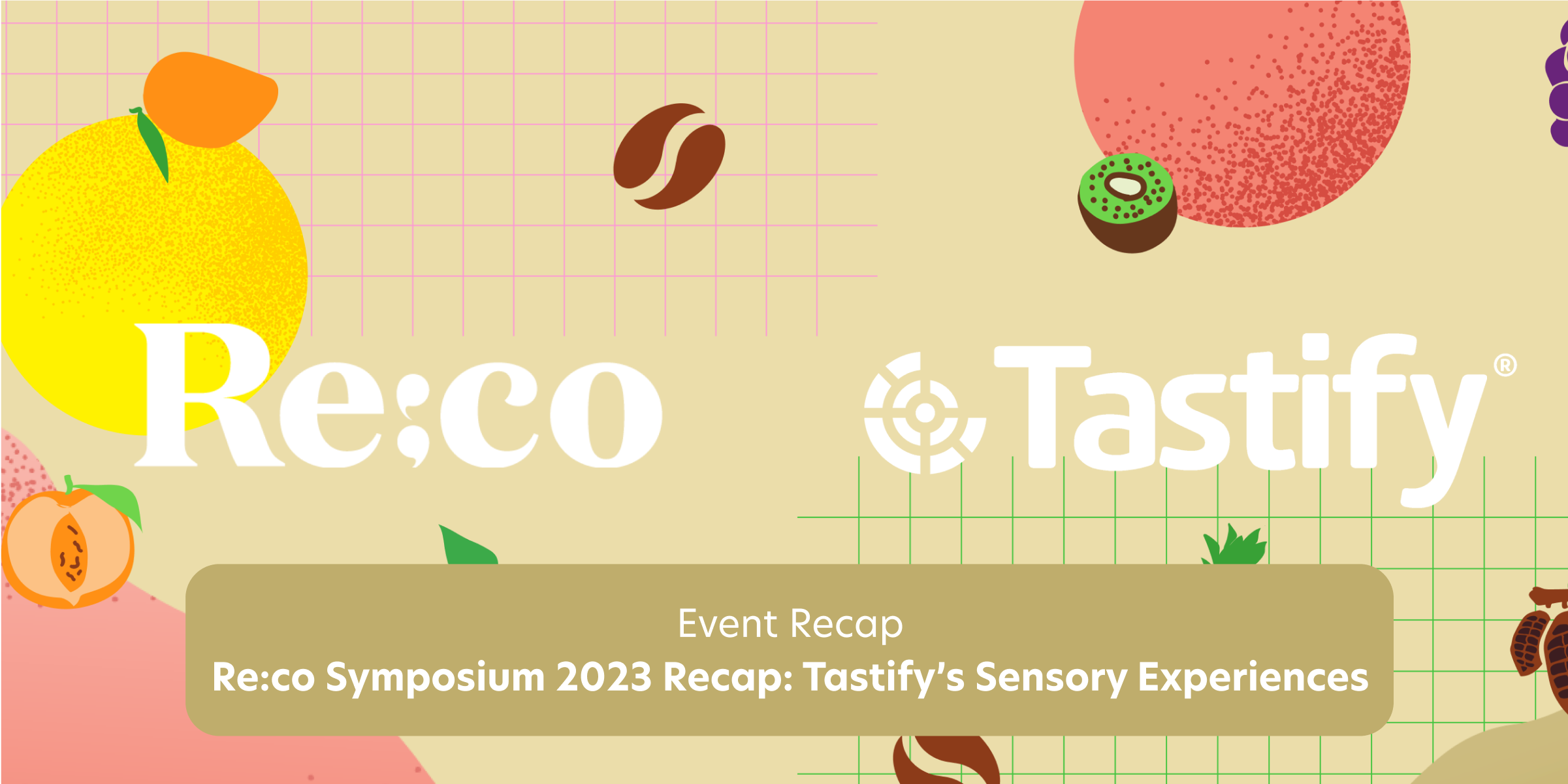
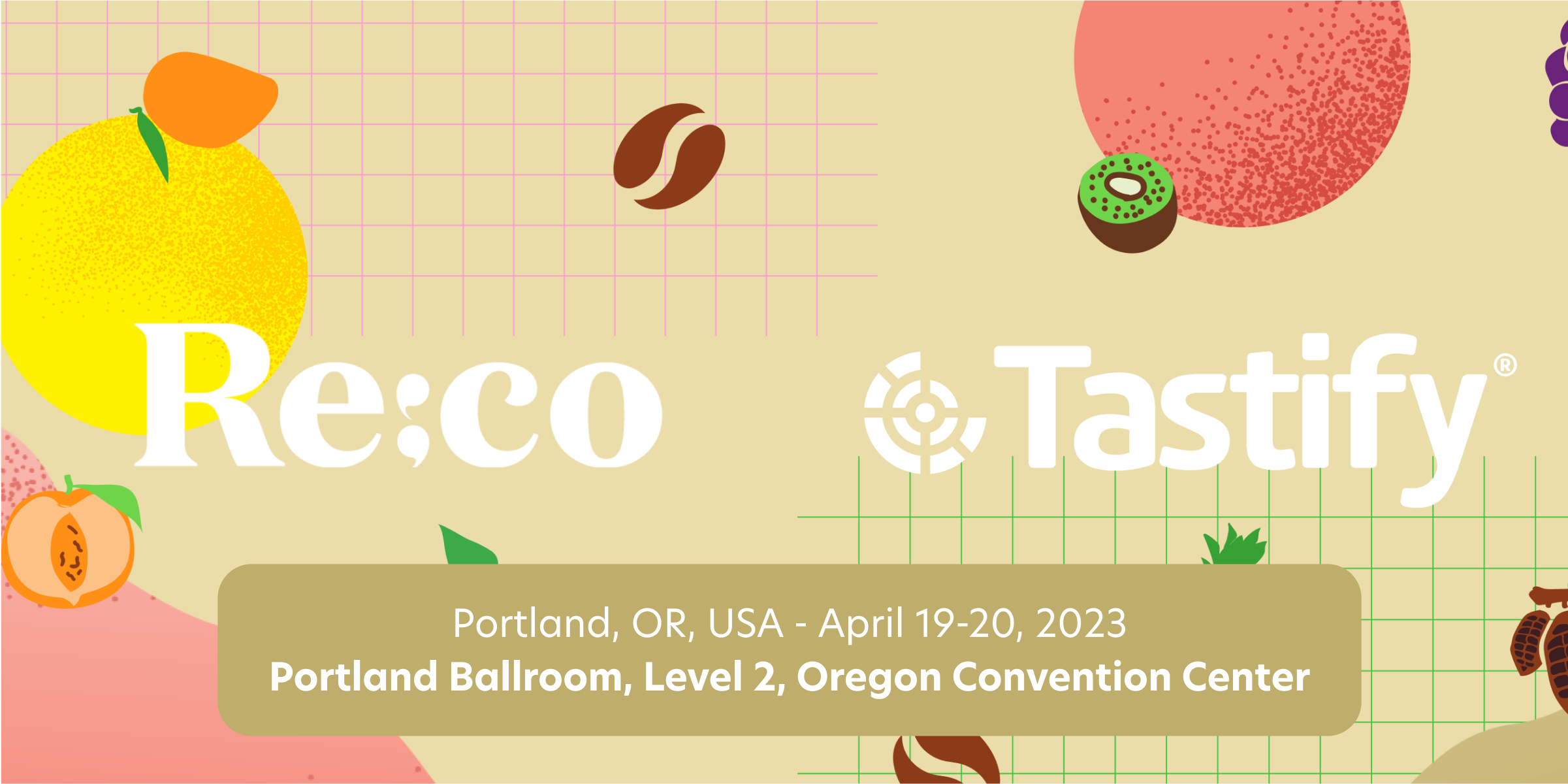

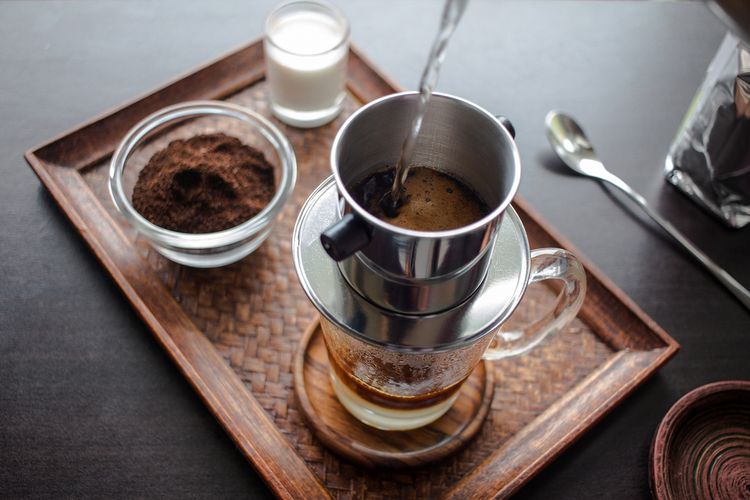

Comments